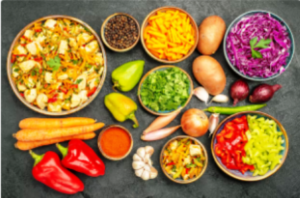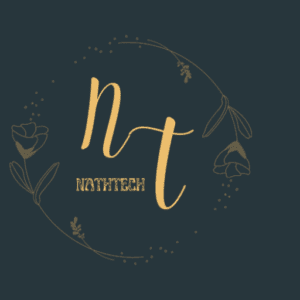Nathtech’s Guide :
Introduction
The debate between vegetarian and non-vegetarian diets has been a longstanding one, with advocates on both sides highlighting the health benefits of their preferred dietary choices. This comprehensive guide by Nathtech delves into which diet is best for overall health, mental health, fitness, longevity, and beauty care. We will also examine how these diets cater to different lifestyles, work requirements, ages, sexes, and climatic conditions.Overall Health

Vegetarian Diet
- Rich in Nutrients: A vegetarian diet, rich in fruits, vegetables, legumes, nuts, and seeds, provides essential vitamins, minerals, and antioxidants that are vital for maintaining overall health.
- Heart Health: Lower in saturated fats and cholesterol, a vegetarian diet can reduce the risk of heart disease and hypertension.
- Digestive Health: High in fiber, a vegetarian diet promotes better digestion and prevents constipation.
Non-Vegetarian Diet
- Complete Proteins: Animal products provide complete proteins containing all essential amino acids, crucial for muscle repair and growth.
- Nutrient-Dense: Non-vegetarian foods are rich in iron, zinc, vitamin B12, and omega-3 fatty acids, supporting various bodily functions.
- Bone Health: Calcium and vitamin D from dairy and fish contribute to stronger bones.
Mental Health
Vegetarian Diet
- Mood Improvement: High intake of fruits and vegetables is linked to lower rates of depression and anxiety due to their high antioxidant content.
- Brain Function: Nuts, seeds, and leafy greens, rich in omega-3 and folate, support cognitive health and brain function.
Non-Vegetarian Diet
- Cognitive Health: Omega-3 fatty acids from fish enhance brain function, reduce inflammation, and lower the risk of mental decline.
- Neurotransmitter Support: Proteins from meat help in the production of neurotransmitters, improving mood and mental stability.
Fitness
Vegetarian Diet
- Endurance: A plant-based diet provides steady energy levels, essential for endurance sports.
- Recovery: Anti-inflammatory properties of plant foods help in faster recovery post-exercise.
Non-Vegetarian Diet
- Strength Training: High protein intake from meat supports muscle strength and recovery, crucial for bodybuilding and high-intensity workouts.
- Performance Enhancement: Nutrients like creatine from meat can enhance physical performance.
Longevity
Vegetarian Diet
- Chronic Disease Prevention: Lower incidence of chronic diseases such as diabetes, hypertension, and certain cancers contributes to a longer life.
- Healthier Aging: Antioxidants and anti-inflammatory compounds in plant foods support healthier aging processes.
Non-Vegetarian Diet
- Balanced Nutrition: When consumed in moderation, a non-vegetarian diet can provide comprehensive nutrients essential for a long, healthy life.
- Muscle Mass Maintenance: Adequate protein intake helps maintain muscle mass, which is vital for longevity.
Beauty Care
Vegetarian Diet
- Skin Health: High intake of vitamins and antioxidants from fruits and vegetables leads to clearer, healthier skin.
- Hair and Nails: Nutrient-rich plant foods promote strong hair and nails.
Non-Vegetarian Diet
- Collagen Production: Protein from animal sources aids in collagen production, improving skin elasticity.
- Hair Growth: Essential fatty acids and proteins support hair growth and strength.

Diet for Different Lifestyles
Hard Workers
- Vegetarian: Ensure protein intake through legumes, tofu, and nuts. Incorporate energy-dense foods like avocados and quinoa.
- Non-Vegetarian: Lean meats and fish provide the necessary protein and energy. Include whole grains and vegetables for balanced nutrition.
Mental Workers
- Vegetarian: Include brain-boosting foods like berries, walnuts, and leafy greens. Omega-3 supplements from algae can be beneficial.
- Non-Vegetarian: Fatty fish like salmon and mackerel enhance cognitive function. Eggs and lean meats support neurotransmitter production.
Lazy Lifestyle
- Vegetarian: Focus on fiber-rich foods to prevent weight gain and promote satiety. Limit high-calorie snacks.
- Non-Vegetarian: Choose lean meats and incorporate more plant-based foods to balance calorie intake. Avoid processed meats.

Dietary Suggestions According to Climate, Sex, and Age
Different Climates
- Cold Climates:
- Vegetarian: Include warm, hearty foods like lentil soups, roasted vegetables, and whole grains.
- Non-Vegetarian: Opt for fatty fish and lean meats to provide warmth and energy. Include root vegetables and whole grains.
- Hot Climates:
- Vegetarian: Emphasize hydrating fruits and vegetables like cucumbers, watermelon, and leafy greens.
- Non-Vegetarian: Choose lean meats and avoid heavy, greasy foods. Incorporate plenty of salads and light dishes.
Different Sexes
- Males:
- Vegetarian: Focus on protein-rich foods like beans, lentils, and tofu. Include iron-rich foods like spinach and nuts.
- Non-Vegetarian: Lean meats and fish provide the necessary protein. Include whole grains and vegetables for balanced nutrition.
- Females:
- Vegetarian: Ensure adequate calcium and iron intake through fortified foods and supplements. Include a variety of fruits and vegetables.
- Non-Vegetarian: Lean meats and fish support iron and protein needs. Incorporate dairy for calcium.
Different Ages
- Children:
- Vegetarian: Ensure sufficient protein and calcium through fortified foods and supplements. Include a variety of colorful vegetables and fruits.
- Non-Vegetarian: Focus on lean meats and fish for essential growth nutrients. Balance with fruits, vegetables, and whole grains.
- Adolescents:
- Vegetarian: Monitor iron and protein intake during growth spurts. Encourage diverse food choices to meet all nutritional needs.
- Non-Vegetarian: Include protein-rich foods to support rapid growth and development. Balance diet with fiber-rich plant foods to support digestion.
- Adults:
- Vegetarian: Ensure sufficient B12, iron, and omega-3 intake through diet and supplements. Focus on whole, unprocessed foods for optimal health.
- Non-Vegetarian: Opt for a variety of protein sources, including fish and lean meats. Incorporate plenty of fruits, vegetables, and whole grains.
- Elderly:
- Vegetarian: Focus on calcium, vitamin D, and B12 for bone health and cognitive function. Ensure easy-to-digest, nutrient-dense foods to support overall health.
- Non-Vegetarian: Prioritize lean protein sources and omega-3-rich fish for heart health. Balance diet with fiber-rich foods to aid digestion and prevent constipation.
